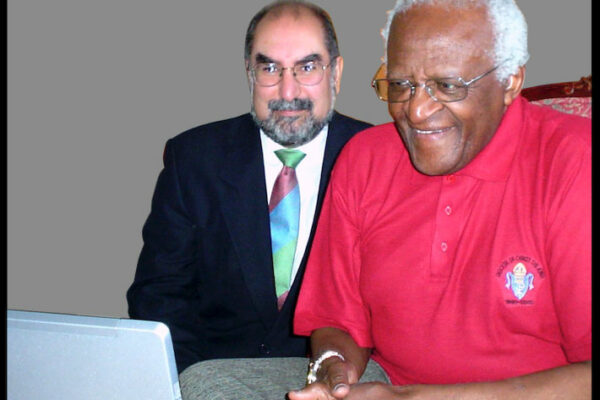The World Is Going In The Right Direction

Based on my 45 years of work in international affairs working on seemingly intractable problems, having travelled to 146 countries, I believe the world is going in the right direction. Let’s take a few areas I am immersed in:
Political violence: In general, there are fewer people dying from political violence than at any time in the last 125 years. There are almost no international wars and very few civil or internal conflicts going on. Even terrorism is at a recent low.
There is no international war where masses of civilians and soldiers are dying anywhere on the planet, especially in the most conflict-ridden continent in human history: Europe. There is no equivalent of the Khmer Rouge killing a third of its population internally. Even the Middle East and North Africa, source of much of recent conflict over the last 50 years, has quieted down.
International co-operation: The constellations of international institutions like the United Nations system – especially the Security Council and the World Health Organization – require serious reform and strengthening. However, the COVID-19 pandemic has brought a new realization, both at the policymaker’ and at the citizen’ levels, about the inter-dependence of the world.
Perhaps not since World War Two has a single event made the world understand that what begins in one country can affect every other country. Geographies, ethnicities, languages and borders did not stop the virus from spreading globally. The virus reminded us of our status – and vulnerability – as one human species.
Governance: No doubt there needs to be better governance many countries. From North Korea to Venezuela to Myanmar there are countries that desperately need change. There has undoubtably been a rise of nationalism and populism. However, overall, the world is better governed when taking the long-term view of history.
There are no equivalents of the Soviet Union and its satellites, subjugating hundreds of millions of people across many countries. There are fewer kleptomaniacs ruining their countries. Where democracy has been taken away, people now rebel, sometimes at great risk, because they know that there is comfort in large numbers and that they can overthrow even the most entrenched violators of democracy. It has happened time and time again over the last few decades.
Human rights: People are generally more aware of their human rights than at any time in human history. They know they can act. Modern, instant, two-way communications have changed the equation for the suppressors of human rights.
So, if a police officer unlawfully kills a person, he can be videotaped by an ordinary citizen and the tape can be instantly shared and watched by millions, resulting in outrage and ultimately delivering charges and conviction. Human rights abusers now must tread very carefully because they can be subject to the wrath of people who have evidence of abuse in their hands.
Knowledge: The knowledge base of humanity is expanding at a rapid rate. We know more this year than we did last year and will know even more next year.
The application of this expanding knowledge is starkly evident in the COVID-19 pandemic. Scientific knowledge not only enabled the world to create effective vaccines against a new virus with unprecedented speed but indeed created a whole new platform, mRNA, that holds great promise for other widespread diseases like HIV and the flu. Moreover, new technologies like CRISPR hold so much promise to the wellness of people that is it safe to bet that a child born today in a developed economy will live to be over 100 years.
Wealth: The world has become much wealthier. The wealth is not evenly distributed as there are more and richer billionaires than ever before, but the average citizen has become richer too.
While the pandemic has brought to the fore the great inequalities that exist and did drive millions of people back into poverty temporally, overall, the world is wealthier now than it has ever been. New drivers of wealth such as Artificial Intelligence will ensure the trend continues.
Absolute poverty should be wiped out within the next 10 to 15 years and hundreds of millions will move up from lower strata to the middle class.
So, the world is far from perfect. Huge challenges exist and new problems will emerge. We will sputter in our responses and there will always be room for improvement.
But, to say that the world is going to hell in a handbasket is simply not evidence based when viewed through the long lens of human history.



